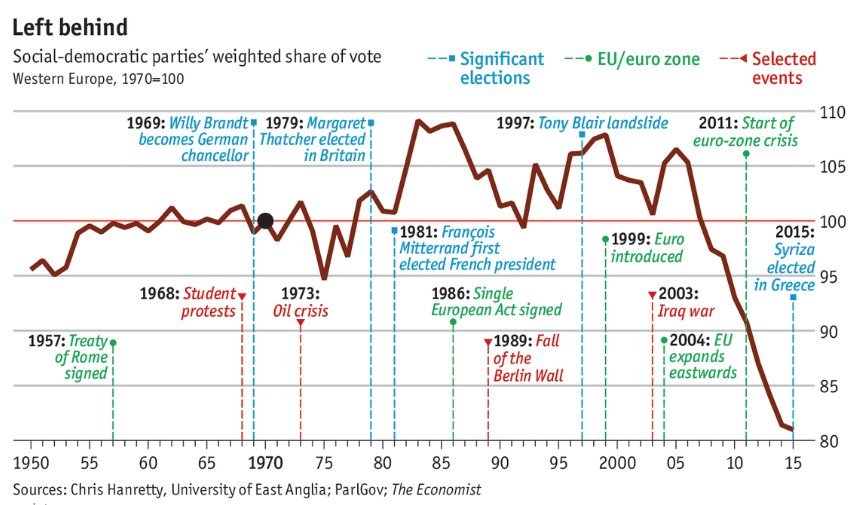A few reflections on Sweden's exit polls
1. The centre-left Social democrats average 25.8% in exit polls -this would be their lowest vote for more than a century (since 1908). The decline of social democracy in Europe continues
#val2018 #SwedenElection
1. The centre-left Social democrats average 25.8% in exit polls -this would be their lowest vote for more than a century (since 1908). The decline of social democracy in Europe continues
#val2018 #SwedenElection

2. The national populist Sweden Democrats average 17.8% in the exit polls. This would be their best result on record (+4.9 pts on the last election) and is broadly in line with the dip in their support picked up in polls during final week of campaign #val2018
3. It's worth reflecting on fact that national populists look set for a 2nd or 3rd place finish amid an economy that has comparatively decent growth, low unemployment & some of the highest living standards in the Western world #val2018
4. Two 'big' parties averaging 43.6% in exit polls -broadly consistent with polls and my pre-election thread pointing to how the main parties are being squeezed
#val2018 #SwedenElection
#val2018 #SwedenElection
https://twitter.com/GoodwinMJ/status/1038041278926204928
5. Compared to last election, & again taking average of exit polls, most but not all of smaller parties -Left Party, Christian Democrats, Centre & liberal- are up a few points. This again points to fragmentation, a story playing out in many other democracies in Europe #val2018
• • •
Missing some Tweet in this thread? You can try to
force a refresh











